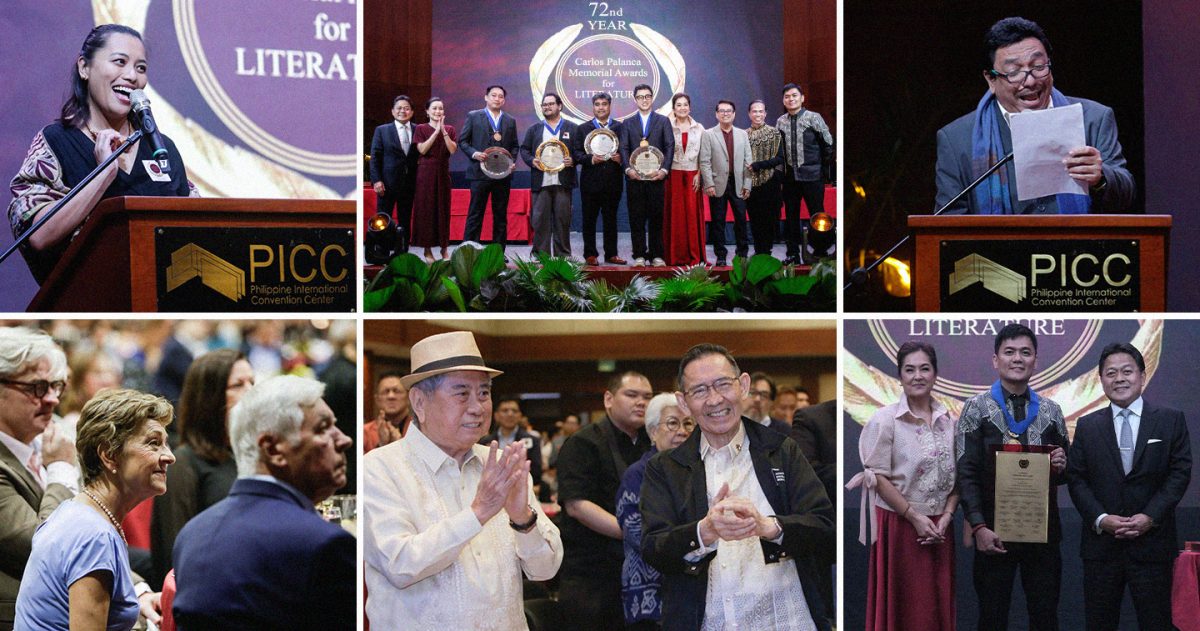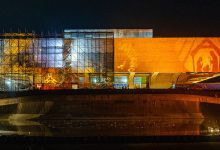MANILA, PHILIPPINES – Each year, Filipino writers come together at the Carlos Palanca Memorial Awards for Literature to honor the art of storytelling and celebrate literary excellence. This year’s prestigious event was held at the Philippine International Convention Center (PICC).
Seasoned writers, their protégés, and even their rivals, as well as aspiring authors, novelists, poets, and playwrights, were drawn to the special night of the Carlos Palanca Memorial Awards for Literature. Here is a recap of that evening.
National Artists for Literature recognized
The program commenced with a special tribute honoring the memory and lasting influence of the Philippines’ National Artists for Literature who have gone ahead, as well as the dedication and commitment of those who continue to use their craft to capture the essence of the nation. Present during the night were Dr. Gemino Abad and Dr. Virgilio Almario, while Dr. Resil Mojares joined via live streaming. They were conferred with the Gawad Dangal ng Lahi plaque, recognizing their extraordinary and invaluable contribution to our community of writers, inspiring the spirit and consciousness of all.
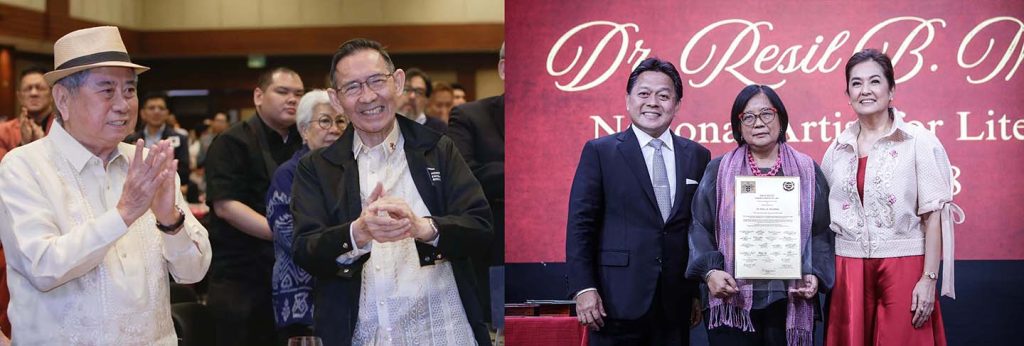
Diplomat visitors
The Carlos Palanca Memorial Awards for Literature proudly welcomed an esteemed gathering of diplomats and VIPs this year. The presence of members of the Diplomatic Corps from Romania, the Republic of Côte d’Ivoire, and the Kingdom of Norway added a distinguished touch to the evening as they graciously joined in celebrating literary excellence.
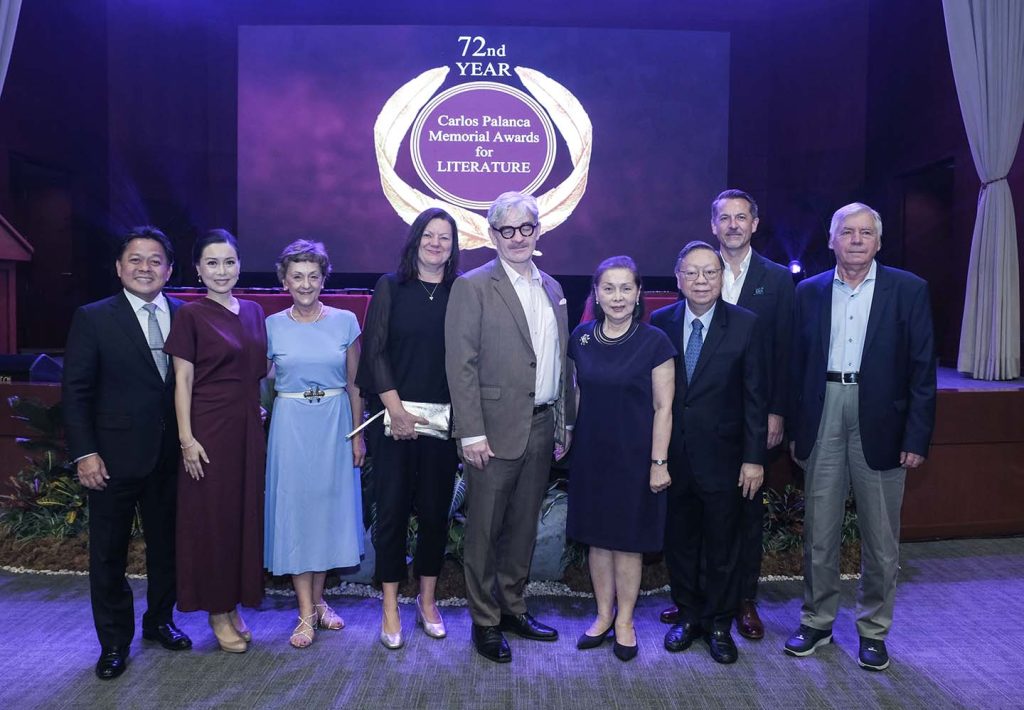
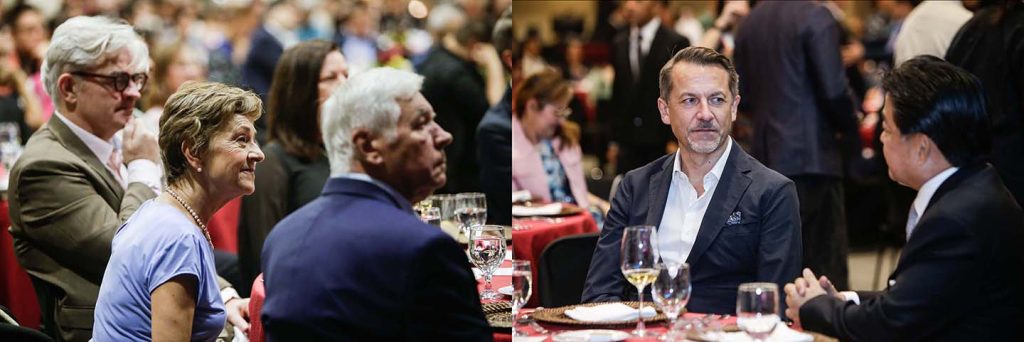
Four new Hall of Fame members inducted
Winning a Palanca Awards medal or certificate is a high honor, and winning the First Prize five times is an incredible feat. Prolific writers who have achieved this are inducted into the Palanca Awards Hall of Fame, with a highly coveted plaque. This year, Eros Sanchez Atalia, Mikael de Lara Co, Miguel Antonio Alfredo V. Luarca, and Joshua Lim So cemented their literary legacy, bringing the all-time total of Hall of Fame honorees to 30.
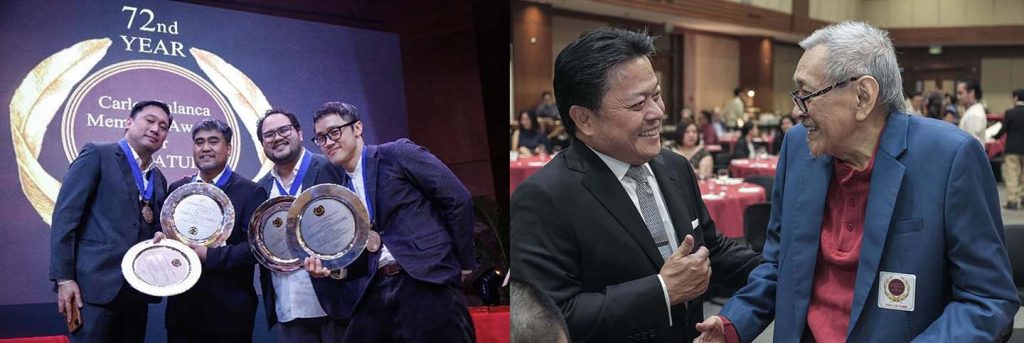
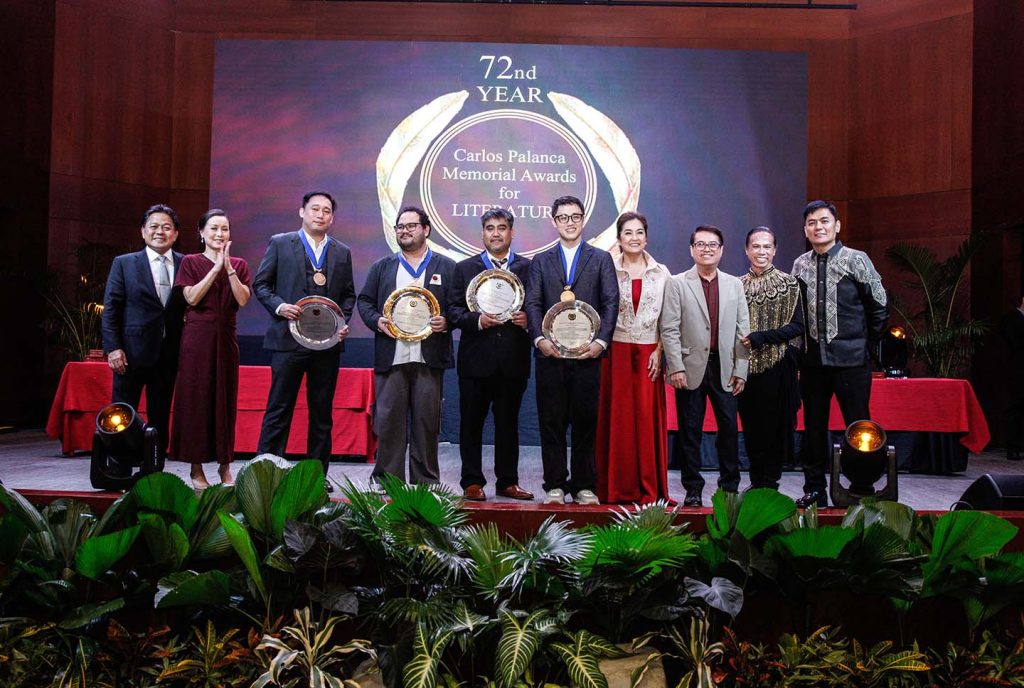
Director Jun Robles Lana as Guest of Honor and Speaker
Decorated writer and filmmaker Jun Robles Lana served as the night’s Guest of Honor and Speaker. Known for the award-winning films “Die Beautiful,” “Kalel, 15,” and “About Us But Not About Us,” Lana produces works that explore themes of identity, marginalization, and human relationships. In his speech, he briefly traced his journey as a writer, his mentors, and the lessons that kept him going—among them the value of humility.
“I write as an act of humility. To me, there is no other way. And to an extent, joining competitions like the Palanca Awards, putting your film ideas through pitches, and sitting down for workshops, are all acts of humility, because you know this can go either way. And you steel yourself for the possibility that you might not be chosen,” Jun said.
He recalled how attending the Palanca Awards opened up opportunities for him, ignited by his meeting with Director Marilou Diaz-Abaya at the awarding ceremony of his Palanca Award-winning screenplay, “Mga Bangka sa Tag-araw,” later renamed “Sa Pusod ng Dagat.” This led to their further collaborations on acclaimed films like “Jose Rizal,” “Muro-Ami,” and “Bagong Buwan.”
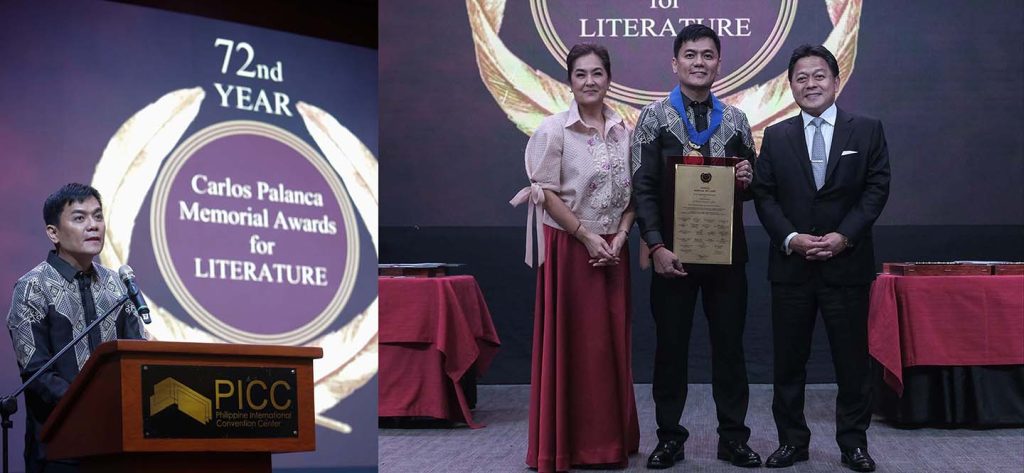
Poetry Written for Children presentation
Attendees of the Palanca Awards are in for a literary treat as each ceremony features a special presentation of a number of the night’s award-winning pieces. This year, the presentation is a reading of poems from the collections that won First Prize in the categories Poetry Written for Children and Tula Para sa mga Bata.
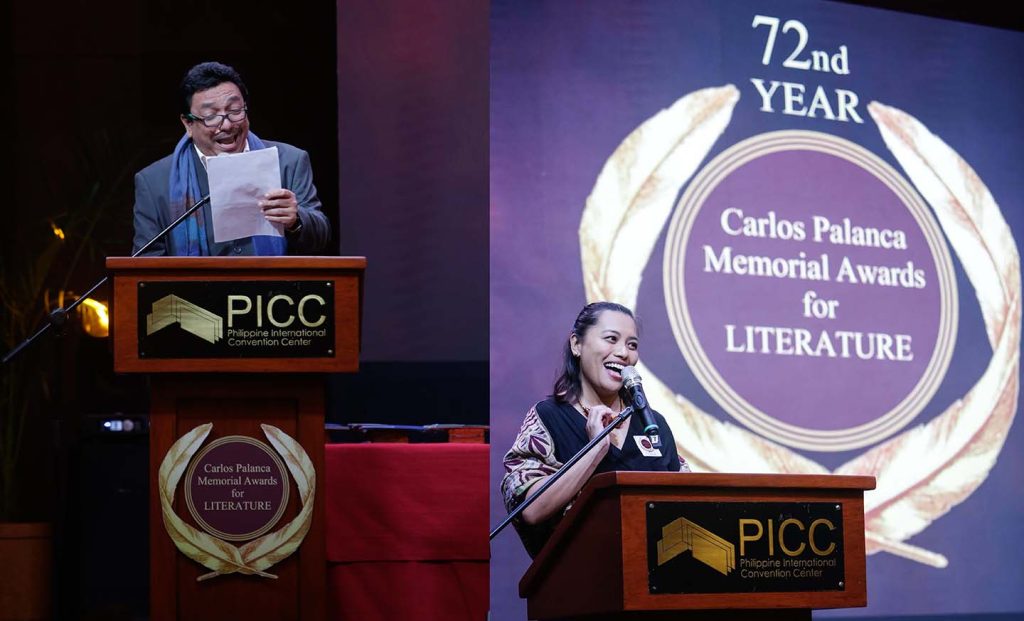
A fresh batch of award-winning writers
All fanfare aside, the main event of the evening is the awarding of prizes to the winners. On top of the lifetime accolade, First Prize winners get a medal and cash prize while Second and Third Prize winners get a certificate and cash prize.
For its 72nd year, a total of 22 writing categories were up for competition, including the Novel and Nobela. 54 entrants emerged victorious in four divisions: Kabataan, English, Filipino, and Regional Languages. Of this number, 31 are new winners, including the Grand Prize winner for Novel, Lakan Ma. Mg. D. Umali. The youngest winner is Glorious Zahara Exylin C. Alesna who is 14 years old, while the oldest winner is Antonio Hernandez who is 78 years old.
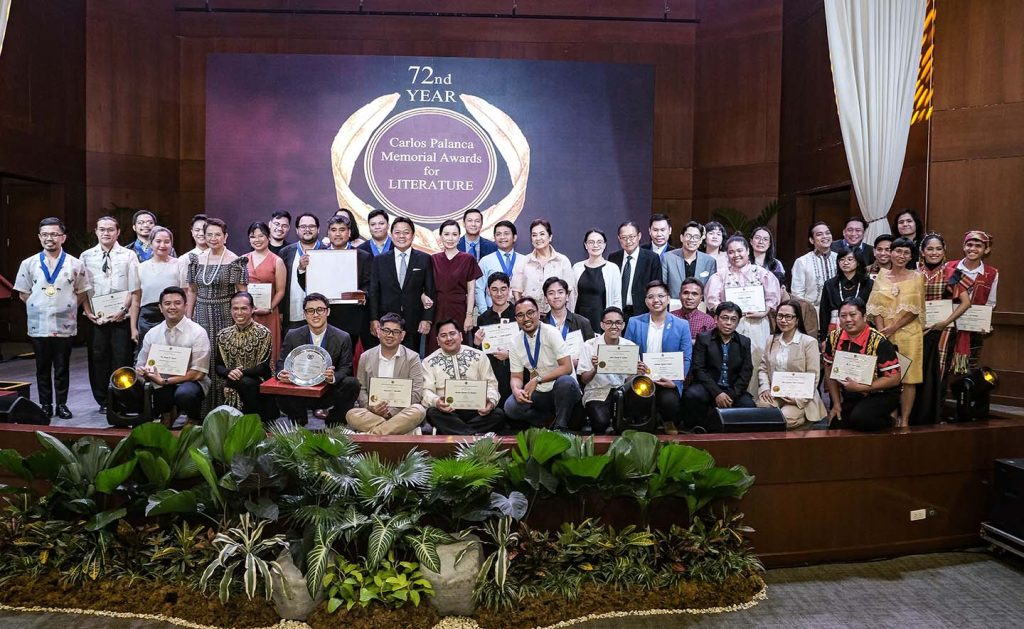
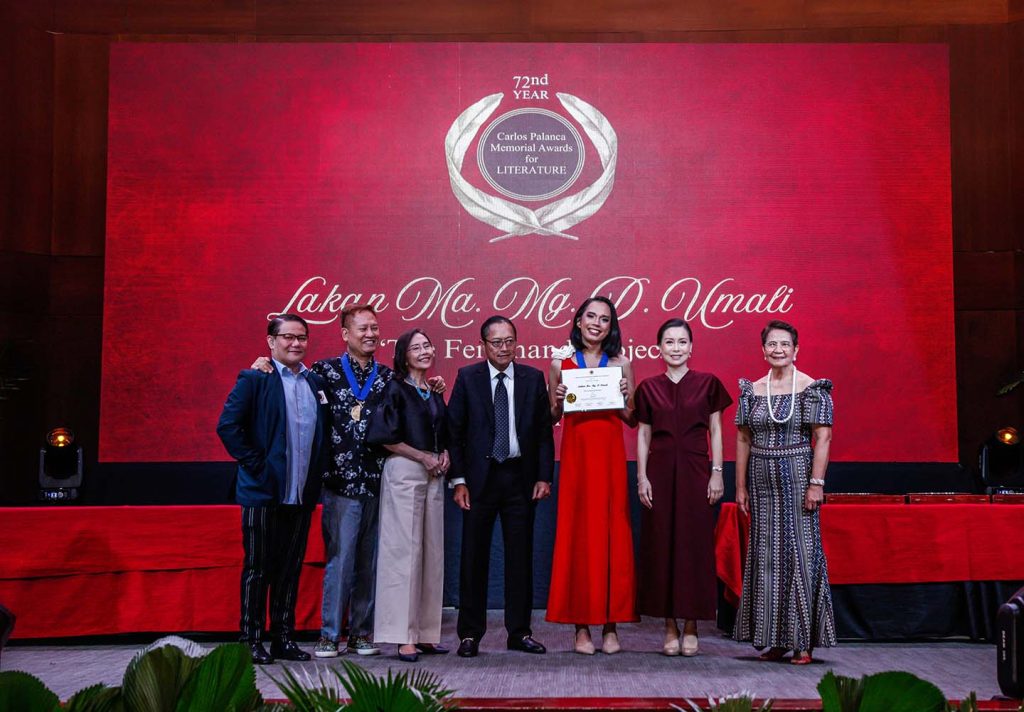
It’s been 74 years since the Palanca Awards started honoring the Filipino literary community to encourage them to keep writing. It became an annual tradition in 1951, skipping only two years because of the COVID-19 pandemic. During its 50th anniversary in 1995, UNESCO recognized the Palanca Family and the CPMA by including them in the UNESCO List of Living Human Treasures of Artists, Writers, and Artisans.
To date, the Palanca Awards has honored 2,580 individuals that if you name a prominent Filipino writer, chances are they have some form of connection to the Palanca Awards, whether as a winner or judge. The longest-running literary competition in the country also serves as a repository of literary treasures, boasting an archive of 2,677 winning works from 1951 to 2024. As the late National Artist for Literature Bienvenido Lumbera remarked in 2009, “The honor derived by an artist from an award comes from a social institution. This institution is run by people, and the true merit of the recognition they give an artist is only as good as the reputation of the people they chose to judge the award. Fortunately for the writers, the institution embodying the Palanca Awards is a commercial institution that does not feel the need to meddle with the results of the awards. And because of this, the writers are indeed very fortunate.”
Writers will come and go, but the Palanca Awards will continue to be a centerpiece of literary support in our country. It continues to provide incentives for writers to craft their finest literary works, making the pursuit of literary recognition attainable to all aspiring writers. It stands as the foremost repository of Philippine literary masterpieces from our most talented writers. As Hall of Fame winner Mikael de Lara Co puts it, the Palanca Awards is a center of gravity, a psychic space, if you will, where people come together for literature. “You know that what they do makes people want to write more, what they do makes people come together from time to time and talk about poetry, talk about literature,” Mikael said. “The important thing is that we have more and more of these spaces. And the bigger they become, the better.”
More information about the Palanca Awards is available on the website, on Facebook, and on YouTube.

